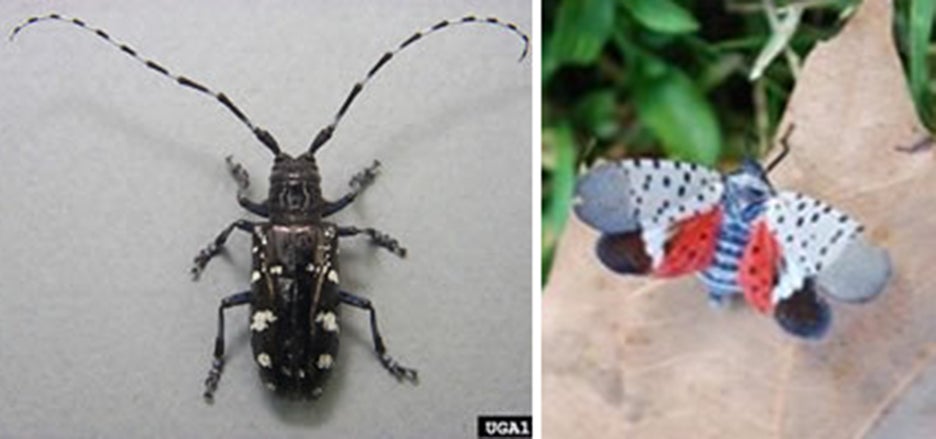‘Poolside Pests’ program encourages pool owners to look for, report nonnative insects
Published 5:15 am Tuesday, June 15, 2021

- Asian longhorned beetle, left, and spotted lanternfly. Courtesy NC Department of Agriculture
|
Getting your Trinity Audio player ready...
|
Nonnative invasive pests are an increasing threat to North Carolina’s agricultural systems and forests.
“Two more nonnative invasive pests are at North Carolina’s doorstep – the Asian longhorned beetle recently found in South Carolina and the spotted lanternfly recently found in Virginia,” said Agriculture Commissioner Steve Troxler. “Both insects could cause devastating losses to North Carolina’s forests, agriculture and landscapes.”
“Poolside Pests” is a program aimed at increasing awareness of Asian longhorned beetle and spotted lanternfly and is so named because these pests are attracted to water and may be found in pools and pool filters. Pools across the state can serve as traps for these pests and North Carolinians are encouraged to report the pests if they see them. Early detection is critical because management tactics are most successful when a new invasion is detected and reported quickly.
While the Poolside Pests program targets pool owners and managers, it’s important that everyone keeps an eye out because these insects can be found anywhere, states the North Carolina Department of Agriculture.
The Asian longhorned beetle is native to Asia and was first found in the United States in the mid-90s in New York. It has since popped up sporadically across the northeast and midwest until last year when it was found in the south for the first time and much closer to North Carolina than ever before. It attacks many species of hardwood trees, but prefers maple.
The spotted lanternfly is native to southeast Asia and was first found in the U.S. in Pennsylvania in 2014. It is quickly expanding its range and, in 2018, was detected in Virginia and continues to spread toward North Carolina. It is a significant nuisance pest and a major pest of agriculture, specifically grapevines, fruit trees, hops and many tree species.
All North Carolinians are encouraged to learn how to recognize and report these pests, by going to poolsidepests.com and, if one is found, to report a pest found on the website.
Poolside Pests is a collaborative effort between the Plant Industry Division, N.C. Forest Service and N.C. State University Cooperative Extension.
READ ABOUT MORE NEWS AND EVENTS HERE.
RECENT HEADLINES:
Farmed shellfish creates half of economic impact of shellfish in North Carolina





